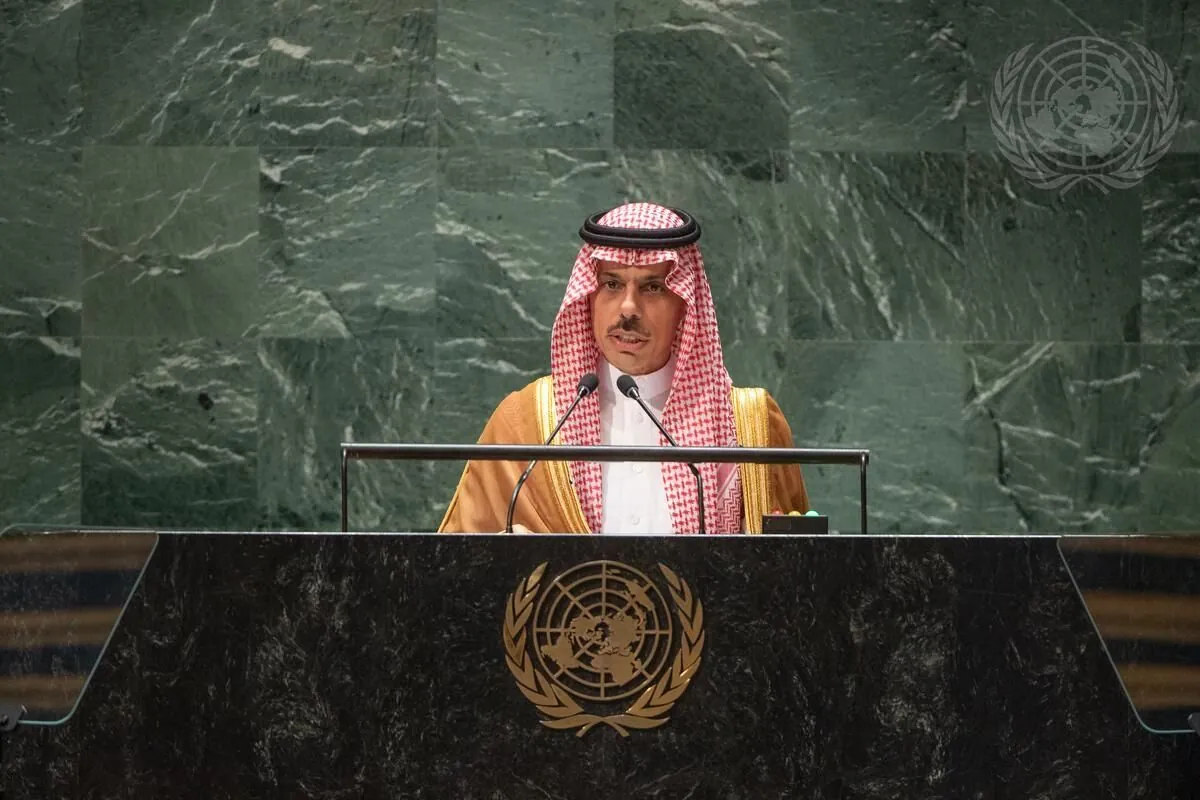In a significant diplomatic move, Prince Faisal bin Farhan Al Saud, Saudi Arabia's Foreign Minister, announced the formation of a global alliance aimed at advancing a two-state solution to the Israeli-Palestinian conflict. The announcement came during the United Nations General Assembly meeting in New York on September 27, 2024.
The alliance, comprising various Arab and Muslim nations along with European partners, represents a renewed push for peace in the region. While specific member countries were not disclosed, European Union foreign policy chief Josep Borrell confirmed that initial meetings would take place in Riyadh and Brussels.
This initiative emerges against the backdrop of the ongoing Gaza conflict, which began 11 months and 20 days ago. The war erupted following a Hamas attack on Israel on October 7, 2023, resulting in significant casualties and hostage-taking. In response, Israel launched a military offensive in Gaza, leading to widespread destruction and loss of life.
Prince Faisal bin Farhan Al Saud emphasized the importance of the two-state solution, stating:
"Implementing the two-state solution is the best solution to break the cycle of conflict and suffering, and enforce a new reality in which the entire region, including Israel, enjoys security and coexistence"
This diplomatic effort aligns with the historical Arab Peace Initiative of 2002, which offered normalized relations between Arab states and Israel in exchange for Palestinian statehood. The initiative also comes at a time when Saudi Arabia is pursuing its "Vision 2030" plan to diversify its economy, potentially influencing its regional diplomatic strategies.
The Saudi-led alliance faces numerous challenges, including the complex history of the Israeli-Palestinian conflict. Since the Balfour Declaration of 1917, which supported establishing a Jewish national home in Palestine, the region has witnessed multiple wars and peace attempts. Notable events include the Six-Day War of 1967, the Oslo Accords of 1993, and two Palestinian uprisings known as Intifadas.
Crown Prince Mohammed bin Salman recently reiterated Saudi Arabia's position, stating that the kingdom would not recognize Israel without the establishment of a Palestinian state. This stance underscores the delicate balance Saudi Arabia is attempting to strike in its regional diplomacy.
The ongoing conflict has had far-reaching consequences. The Gaza Strip, governed by Hamas since 2007, has been under an Israeli-Egyptian blockade. Meanwhile, cross-border tensions between Israel and Hezbollah in Lebanon have escalated, further complicating the regional security landscape.
As this new alliance takes shape, it faces the challenge of addressing contentious issues such as the status of Jerusalem, the Israeli West Bank barrier, and the role of international organizations like UNRWA in supporting Palestinian refugees. The success of this initiative may depend on its ability to navigate these complex issues while bringing together diverse international stakeholders.
The formation of this alliance represents a potential turning point in Middle East diplomacy, with Saudi Arabia taking a leading role in seeking a resolution to one of the world's most enduring conflicts. As meetings commence in Riyadh and Brussels, the international community watches closely, hoping for progress towards lasting peace and stability in the region.
